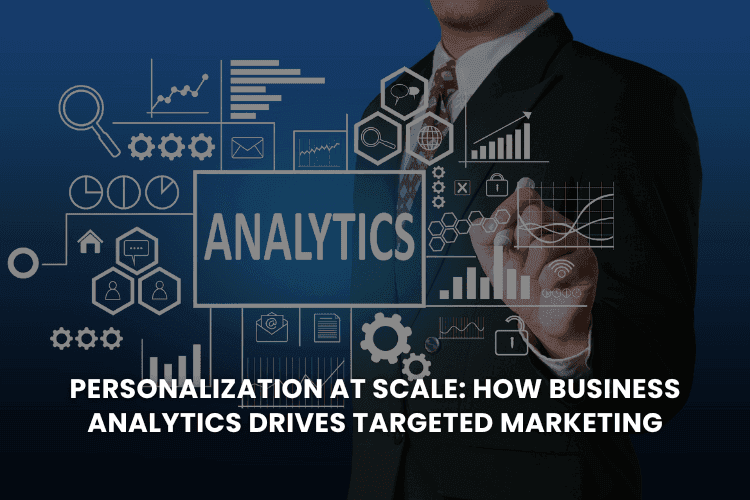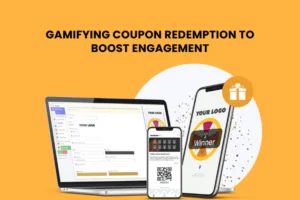
Personalization at Scale: How Business Analytics Drives Targeted Marketing
- The Growing Demand for Personalization in Retail
- Using Business Analytics to Drive Targeted Marketing
- The Benefits of Personalization at Scale
- Conclusion
In today’s crowded retail landscape, creating a one-size-fits-all marketing strategy is no longer enough. Customers expect personalized experiences that cater to their individual preferences and needs. The challenge for retailers is to deliver these personalized experiences at scale—reaching thousands, even millions, of customers without losing the personal touch. This is where business analytics plays a critical role.
With the power of retail analytics and customer insights, businesses can not only understand their audience on a deeper level but also deliver tailored marketing campaigns that resonate with each customer. In this blog, we’ll explore how business analytics drives personalization at scale and the key benefits of adopting a data-driven approach to marketing.
The Growing Demand for Personalization in Retail
Today’s customers are inundated with marketing messages, making it increasingly difficult for retailers to cut through the noise. What makes the difference? Personalization. Research shows that consumers are far more likely to engage with brands that provide personalized recommendations, offers, and communications.
With business analytics tools, retailers can analyze customer behavior, preferences, and interactions across multiple channels. This data allows for a more granular understanding of each customer, which in turn enables highly targeted marketing efforts.
For instance, a customer who frequently purchases athletic gear may receive promotions for the latest sneakers or exclusive discounts on workout clothes. A shopper who typically buys luxury items may receive VIP offers for high-end products. These tailored campaigns are made possible by leveraging customer analytics to deliver the right message to the right person at the right time.
Using Business Analytics to Drive Targeted Marketing
Business analytics allows retailers to tap into customer data and create comprehensive profiles based on shopping patterns, demographic information, and even social media interactions. This data can be used to segment audiences and design targeted marketing campaigns that speak directly to the interests and needs of specific customer groups.
Key ways that business analytics drives targeted marketing include:
- Customer Segmentation and Profiling:
Through advanced customer segmentation analytics, businesses can group customers based on behaviors, demographics, and buying preferences. This enables retailers to create personalized marketing messages for each segment, ensuring that the campaigns resonate with different groups of customers. Segments can be as broad as age and gender or as specific as purchase frequency and preferred product categories. - Predictive Analytics for Personalization:
Predictive analytics takes personalization to the next level by forecasting what customers are likely to do next. Based on past behavior, predictive models can determine which products customers are most likely to purchase, which offers will drive engagement, and which customers are at risk of churn. Retailers can then proactively deliver personalized promotions and offers to engage customers before they disengage or move on to competitors. - Omnichannel Consistency:
Personalization is most effective when it’s consistent across all channels. Omnichannel analytics helps retailers ensure that customers receive a seamless, personalized experience whether they are shopping online, browsing on their mobile app, or visiting a physical store. For example, a customer may receive an email offer for a product they viewed online, followed by a reminder on social media or a personalized in-store experience.
- Real-Time Personalization:
With real-time data analytics, retailers can provide immediate, tailored experiences. For example, if a customer adds an item to their cart but doesn’t complete the purchase, retailers can send personalized cart abandonment emails with discounts or reminders. By responding to customer actions in real time, retailers can boost engagement and conversion rates significantly.
The Benefits of Personalization at Scale
Personalization isn’t just about sending the right message—it’s about driving results. Here’s how business analytics enables retailers to reap the benefits of personalized, targeted marketing at scale:
- Increased Customer Engagement:
Personalized marketing campaigns are more likely to capture attention and foster engagement. Customers are more responsive to messages that feel relevant and tailored to their interests. - Higher Conversion Rates:
When customers receive personalized offers that align with their preferences, they are more likely to make a purchase. This can lead to higher conversion rates and improved ROI on marketing campaigns. - Improved Customer Loyalty:
Personalization builds stronger relationships with customers. By showing that you understand their preferences and needs, you create loyalty and encourage repeat purchases.
- Optimized Marketing Spend:
With business analytics, retailers can better target their marketing efforts, ensuring that resources are spent on campaigns and offers that are most likely to yield results.
Conclusion
As customer expectations continue to evolve, personalization will remain a crucial factor in retail success. Delivering personalization at scale may seem like a daunting task, but with the help of business analytics, it becomes not only achievable but also highly effective.
By leveraging customer insights, segmentation, and predictive analytics, retailers can create personalized experiences that resonate with each customer—driving engagement, loyalty, and sales.
Are you ready to transform your marketing strategy with data-driven personalization? Discover how OptCulture’s analytics tools can help your business deliver targeted marketing campaigns that boost performance and customer satisfaction.




